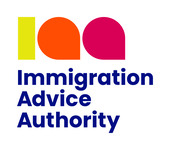Table of Contents
Self-Sponsorship Visa Route Explained
The Self-Sponsored Skilled Worker Visa is one of the most popular routes for entrepreneurs and business owners looking to establish themselves in the UK. This approach leverages the UK’s Skilled Worker visa system, allowing entrepreneurs to create a UK company, obtain a sponsor license, and effectively sponsor themselves for a work visa.
Overview of Self-Sponsorship Visa Route
Self-sponsorship is not officially recognized as a distinct visa category by the Home Office. It is instead a strategic application of the existing Skilled Worker visa framework. It enables business owners to establish and operate their own companies in the UK while securing their immigration status.
In the simplest terms, it works as follows:
- You establish a UK limited company
- Your company applies for and obtains a sponsor license
- The company assigns a Certificate of Sponsorship to you for a genuine role
- You apply for a Skilled Worker visa based on this sponsorship
This route offers significant advantages for entrepreneurs whose business models may not meet the innovation requirements of the Innovator Founder visa, or who prefer the stability and flexibility of the Skilled Worker route.
The Skilled Worker visa is initially granted for up to 5 years, with unlimited extensions possible as long as the sponsorship remains valid. After 5 years of continuous residence, visa holders can apply for settlement (Indefinite Leave to Remain).
Company Formation Requirement
The first step in the self-sponsorship journey is establishing a UK limited company. This process involves:
- Setting up a UK company
- Opening a business bank account
- Securing an office address
- Appointing company directors
- Business plan and evidence of trading
The company must be properly established before applying for a sponsor license. This includes having appropriate premises, necessary regulatory approvals for your industry, and evidence of genuine business activities or concrete plans to commence trading.
Sponsor Licence Requirement and Application Process
Once your UK company is established, the next critical step is obtaining a sponsor license. This process is rigorous, as the Home Office seeks to ensure that only legitimate businesses can sponsor workers.
Key aspects of the sponsor licence application include:
- License type: You will need to apply for a Worker license, specifically for the Skilled Worker route.
- Key personnel: You must appoint individuals to mandatory roles:
- Authorizing Officer (responsible for license compliance)
- Key Contact (main point of contact with the Home Office)
- Level 1 User (manages the sponsorship management system)
- Supporting documentation: You’ll need to provide extensive evidence of your company’s legitimacy, including:
- Company registration documents
- Business bank account statements
- Evidence of premises (lease agreement or property ownership)
- Evidence of trading or preparations to trade
- Relevant business licenses or regulatory approvals
- Employer’s liability insurance
- VAT registration (if applicable)
- Detailed business plan
- Application fee:
- £536 for small companies or
- £1,476 for medium/large companies (as of 2025)
- Processing time: Standard processing takes 8-10 weeks, though priority service is available for an additional fee, reducing this to 10 working days.
As part of the Sponsor Licence application, the Home Office may conduct a pre-license verification visit to your business premises to confirm the information provided in your application. Being prepared for this visit is crucial for success.
Certificate of Sponsorship Requirement for Self-Sponsorship Route
After obtaining a sponsor license, you must assign a Certificate of Sponsorship (CoS) to yourself. This digital certificate contains information about the role you’ll fill in your company.
Key Requirements for the CoS include:
- Genuine vacancy: The role must be genuine and not created artificially for immigration purposes. It should align with your business activities and be necessary for your company’s operations.
- Eligible occupation: The role must be on the list of eligible occupations for Skilled Worker visas, typically at RQF level 6 or above (equivalent to A-level qualifications). Common roles for self-sponsoring entrepreneurs include:
- Chief Executives and Senior Officials (SOC code 1115)
- Marketing and Sales Directors (SOC code 1132)
- Information Technology and Telecommunications Directors (SOC code 1136)
- Functional Managers and Directors (SOC code 1139)
- Skill level: You must demonstrate that you have the skills, qualifications, and experience necessary for the role.
- ATAS certificate: For certain research-related roles in sensitive subjects, an Academic Technology Approval Scheme (ATAS) certificate may be required.
The CoS must be assigned through the Sponsorship Management System (SMS), and a fee of £199 applies for each certificate.
Genuine Vacancy Considerations
The “genuine vacancy” requirement is particularly scrutinized in self-sponsorship cases. The Home Office is alert to situations where roles are created artificially to facilitate immigration rather than meet genuine business needs.
To satisfy this requirement:
- Role description: Create a detailed job description that clearly outlines responsibilities, required qualifications, and how the role contributes to your business operations.
- Market rate salary: Offer a salary that meets or exceeds both the general threshold and the “going rate” for the occupation. Artificially inflated salaries may raise suspicion.
- Business necessity: Demonstrate why the role is necessary for your business, ideally through your business plan and financial projections.
- Recruitment evidence: While not always required, evidence of a genuine recruitment process can strengthen your case. This might include job advertisements, interview notes, or explanations of why you are uniquely qualified for the role.
- Organizational structure: Show how the role fits within your company’s structure, particularly if you have or plan to have other employees.
The Home Office may conduct compliance visits to verify that sponsored employees are genuinely performing the roles described in their CoS. Maintaining detailed records of work activities is therefore essential.
Minimum Salary Thresholds
Salary requirements are a critical aspect of the Skilled Worker visa and have been subject to significant increases in recent years. As of 2025, the minimum salary thresholds are:
- General threshold: £38,700 per year (increased from £26,200 in 2023)
- Going rate: The occupation-specific “going rate” based on UK salary data. This varies by role and must be pro-rated for part-time work.
You must meet whichever is higher between the general threshold and the going rate for your specific occupation.
For self-sponsoring entrepreneurs, these salary requirements present both a challenge and a compliance obligation:
- Financial viability: Your business must generate sufficient revenue to sustainably pay your salary.
- PAYE and National Insurance: The salary must be paid through PAYE with appropriate tax and National Insurance contributions.
- Regular payments: Salary must be paid regularly (typically monthly) and at the level specified in the CoS.
- Record-keeping: Detailed salary records must be maintained for compliance purposes
Application Process
Once you have assigned a CoS to yourself, you can proceed with your Skilled Worker visa application:
- Online application: Complete the application form on the UK government website.
- Biometric appointment: Provide fingerprints and a photograph at a visa application center.
- Supporting documents: Submit required documentation, including:
- Valid passport
- Certificate of Sponsorship reference number
- Evidence of English language proficiency (CEFR level B1)
- Bank statements showing maintenance funds (£1,270 held for 28 days, unless your sponsor certifies maintenance)
- Tuberculosis test results (if applicable)
- Criminal record certificate (if working with vulnerable people)
- Application fees:
- Standard application fee: £625 to £1,423 depending on job type and whether applying from inside or outside the UK
- Immigration Health Surcharge: £1,035 per year of visa duration
- If bringing dependents, additional fees apply for each family member
- Processing time: Standard processing takes 3-8 weeks, with priority services available at additional cost.
Compliance Obligations
Self-sponsorship creates a dual role as both sponsor and sponsored worker, with significant compliance obligations:
- Sponsor duties:
- Maintaining accurate records of your employment and right to work documents
- Reporting certain events to the Home Office, such as changes to your role or salary
- Cooperating with Home Office compliance visits
- Ensuring your business remains active and trading
- Maintaining your sponsor license through annual renewals
- Sponsored worker obligations:
- Working only in the job described in your CoS
- Reporting changes in personal circumstances
- Not claiming public funds
- Registering with the police (if applicable)
Extension and Settlement Pathway
The Skilled Worker visa offers a clear pathway to permanent residence:
- Extensions: You can extend your visa indefinitely as long as you continue to meet the requirements, including maintaining your sponsorship and salary level.
- Settlement (Indefinite Leave to Remain): After 5 years of continuous residence on the Skilled Worker visa, you can apply for settlement if you:
- Continue to be sponsored in an eligible role
- Meet the salary requirements applicable at the time of application
- Pass the Life in the UK test
- Meet the English language requirement (CEFR level B1)
- Have not spent more than 180 days outside the UK in any 12-month period during the 5-year qualifying period
- Citizenship: After obtaining settlement, you can apply for British citizenship after a further 12 months (or immediately if married to a British citizen).
This pathway provides a clear route to permanent status in the UK, offering long-term security for entrepreneurs establishing businesses
Pros and Cons of Self-Sponsorship Route for Entrepreneurs
Pros:
- Suitable for traditional and non-innovative businesses that wouldn’t qualify for the Innovator Founder visa
- No specific investment requirement beyond what’s needed to establish and operate your business
- Clear and predictable pathway to settlement after 5 years
- Lower English language requirement (B1) compared to Innovator Founder (B2)
- Ability to bring family members (spouse/partner and children under 18)
- Flexibility to change employers or set up different businesses in the future (with new sponsorship)
Cons:
- High salary requirements that may be challenging for early-stage businesses
- Complex sponsor license application process with significant documentation requirements
- Ongoing compliance obligations as both sponsor and sponsored worker
- Longer path to settlement (5 years) compared to Innovator Founder (3 years)
- Risk of license revocation if compliance obligations are not met
- Potential scrutiny of the genuine vacancy requirement in self-sponsorship cases
UK Self-Sponsorship vs Innovator Founder Visa: Which is Better?
In conclusion
The Self-Sponsorship Visa route offers a compelling option for business people to live and work in the UK. However, this route requires careful planning and documentation as well as ongoing compliance. With professional support from us, we can guide you at every step of the journey and make your move to the UK stress-free.
Author

Tochi Okoronkwo
Tochi is an IAA certified immigration adviser with expert knowledge of UK Immigration Law and a genuine desire to make your immigration journey as smooth and stress-free as possible.
Stay Updated
Related Articles
Quickly browse the latest offers, read in-depth articles, and case studies to get the full story.


